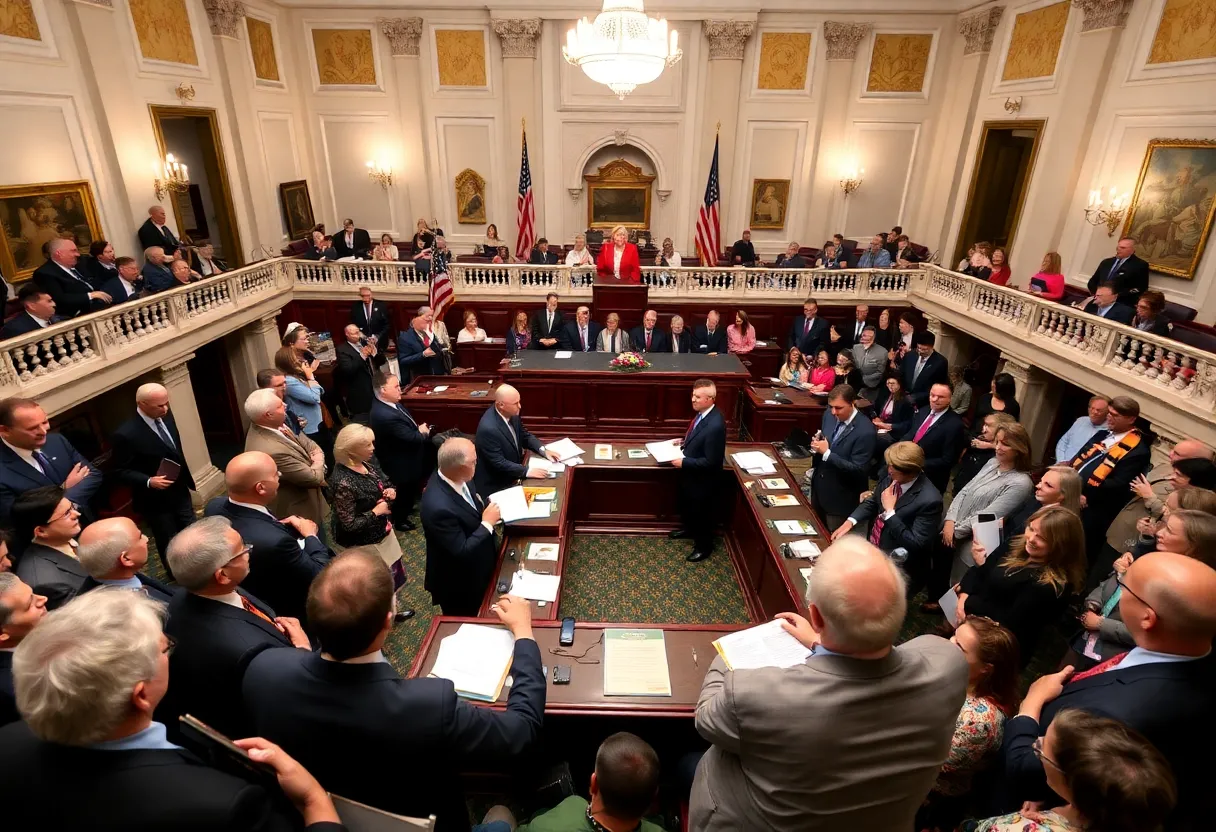

Florida Capitol Debate
Want to target the right audience? Sponsor our site and choose your specific industry to connect with a relevant audience.
Prominent brand mentions across targeted, industry-focused articles
High-visibility placements that speak directly to an engaged local audience
Guaranteed coverage that maximizes exposure and reinforces your brand presence
Interested in seeing what sponsored content looks like on our platform?
May’s Roofing & Contracting
Forwal Construction
NSC Clips
Real Internet Sales
Suited
Florida4Golf
Click the button below to sponsor our articles:
Sponsor Our ArticlesFlorida lawmakers are advancing House Bill 955, which aims to make E-Verify mandatory for all businesses in the state. This measure could reinforce employment regulations as it targets illegal immigration but also raises concerns among small business owners regarding potential labor shortages in key sectors like agriculture and construction. Opposing views highlight the balance between fair hiring practices and economic growth during a post-pandemic recovery period.
In sunny Florida, the debate around immigration and employment laws continues to heat up as state lawmakers once again push for mandatory E-Verify across all businesses. A hot topic, no doubt, but what does it all mean for you, the everyday resident? Let’s break it down!
This time around, the focus is on House Bill 955 (HB 955), which has successfully passed through several committees in the House during the current legislative session. With the clock ticking and the session set to wrap up on May 2, there’s a sense of urgency buzzing in the air.
The driving force behind this bill is to tackle illegal immigration in Florida by making E-Verify, a federal database designed to confirm the employment eligibility of newly hired workers, mandatory for all private employers in the state. Under the proposed legislation, even businesses with fewer than 25 employees, who are currently not bound by E-Verify requirements, would be pulled into the mix. This marks a significant change from previous laws that only applied to larger organizations.
Imagine this: If businesses refuse to comply with E-Verify, they could face a hefty $1,000 fine for each day they continue to break the rules. Not only that, there’s also the looming threat of having their business licenses suspended! That is bound to grab some attention from small business owners who may not have been on board with this whole idea in the first place.
Critics, particularly from the agricultural and construction sectors, are expressing their deep concerns. Florida is home to a large number of H-2A visas for agricultural jobs, and many fear that tighter E-Verify requirements could lead to significant labor shortages. As the economy is still trying to find its footing post-pandemic, the worry is that increasing hiring costs and regulatory pressure could hinder growth.
News Summary The Florida Fish and Wildlife Conservation Commission (FWC) is preparing to issue 187…
News Summary As Jacksonville enters the spring of 2025, the housing market shows signs of…
News Summary Barry University is set to launch its new Artificial Intelligence Center on April…
News Summary Tampa's shopping scene is set for significant changes as the Washington Prime Group…
News Summary A devastating shooting at Florida State University has left two dead and several…
News Summary Hoerbiger Corp. has commenced construction of a new 200,000 square foot manufacturing facility…